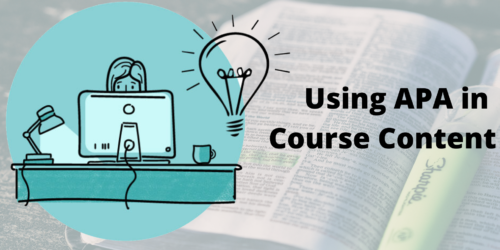
Grammarly Premium EDU – Preserving Academic Integrity in Writing
Written by Chantel-Marie Stickel.
What is Grammarly Premium (EDU version)?
Grammarly is a tool designed to improve writing, and all Conestoga staff and students have free access to Grammarly Premium (EDU version). While Grammarly can be used effectively to correct spelling and grammar errors, there are certain features that can alter the author’s voice, tone, clarity, and sentence structure, which may undermine the originality of their work and may lead to an academic integrity violation (AIV).
The Hidden Pitfalls of Grammarly’s Features
All of Grammarly’s writing preference features are automatically activated in students’ accounts. Some of these features include “rewrite sentences for clarity,” “avoid passive voice,” “detect AI text,” and “sound more confident” (Grammarly, 2025). These features may suggest changes and edits that differ significantly from the student’s natural writing style and abilities, which may comprise the originality of the student’s work and ultimately undermine the course learning outcomes.
The Grammarly Guide
To help students protect the originality of their work and maintain academic integrity in their writing process, The Academic Integrity Office has created the Student Guide – Grammarly Premium (EDU version). This resource offers general guidelines and best practices for using Conestoga’s approved version of Grammarly with academic integrity in mind. It is important for students to be aware of how Grammarly’s writing preference features can impact their work.
Considerations for Faculty
Consider course learning outcomes when permitting the use of Grammarly in a course. Explicit instruction should be provided to students as to whether Grammarly is a permitted tool in the course, and which features students may need to manually deactivate in order to maintain the validity of assessments and course learning outcomes. In addition, it’s a good idea to inform students if a disclaimer statement is required in their assessments to declare that Grammarly was used and explain how it was utilized.
Example disclaimer statement
I used Grammarly Premium (EDU version) to proofread my work and make corrections to my spelling, grammar, and the format of my APA citations and references. I understand that using Grammarly to change the tone, content, and/or structure of my writing can compromise the integrity of my original work. I have saved an unedited copy of my work, which I can provide upon request.
Best Practices for Using Grammarly
If you decide to permit the use of Grammarly, here are some tips for both faculty and students:
- Use the appropriate version. Students are encouraged to use only the Grammarly Premium (EDUversion) for their academic writing. Students need to sign into their Grammarly account using their Conestoga email. Other versions of Grammarly may include generative artificial intelligence features.
- Be transparent. Clearly communicate if students are allowed to use Grammarly and how they can use Grammarly in their courses.
- Advise students to save an unedited version. Students are strongly encouraged to save an original, unedited version of their work before they use Grammarly. This copy serves as evidence of the student’s writing process and allows faculty to track the changes that were made using Grammarly.
- Encourage students to be intentional in their use. Students should avoid automatically accepting Grammarly’s suggestions for edits without careful consideration of how their work will be affected. For example, if a student is accepting Grammarly’s suggestion for a word replacement, the student should fully understand the meaning of the new word and ensure that it fits within the context of their sentence.
Grammarly is a great tool when used ethically. It is essential for students to understand Grammarly’s limitations and its potential impact on their academic integrity. By providing guidance on the responsible use of Grammarly, you can play a key role in helping students maintain academic integrity and authentically meet course learning outcomes.
References
Conestoga College Library. (n.d.). Academic Integrity. https://library.conestogac.on.ca/academic-integrity
Conestoga College Library. (n.d.). Grammarly. https://lib.conestogac.on.ca/grammarly.
Grammarly. (2025). Grammarly (March 28 version) [Large language model]. https://www.grammarly.com






